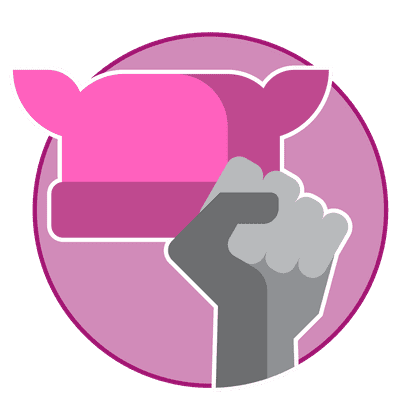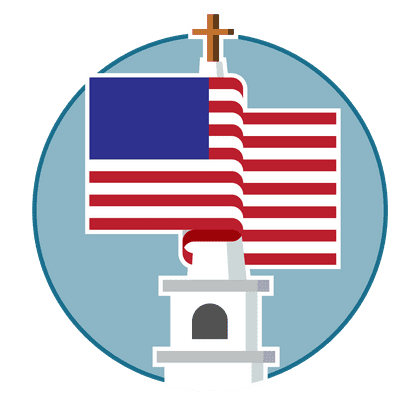Progressive Activists

8% of Americans
“The deck is stacked against people of color, against women, against people who don’t have the advantages that others have. It’s not an egalitarian society by any means.”
60-year-old man, Indiana, Progressive Activist
Progressive Activists have strong ideological views, high levels of engagement with political issues, and the highest levels of education and socioeconomic status. Their own circumstances are secure. They feel safer than any group, which perhaps frees them to devote more attention to larger issues of social justice in their society. They have an outsized role in public debates, even though they comprise a small portion of the total population, about one in 12 Americans. They are highly sensitive to issues of fairness and equity in society, particularly regarding race, gender, and other minority group identities. Their emphasis on unjust power structures leads them to be very pessimistic about fairness in America. They are uncomfortable with nationalism and ambivalent about America’s role in the world.
Main concerns
Climate Change, Inequality, Poverty
Compared to the average American:
-
More than twice as likely to list politics as a hobby (73 percent v. 35 percent)
-
Three times more likely to say that people’s outcomes result from “luck and circumstance” (75 percent v. 25 percent)
-
Less likely to believe the world is becoming a “more and more dangerous place” (19 percent v. 38 percent)
-
More than twice as likely to say that they never pray (50 percent v. 19 percent)
-
Almost three times more likely to be “ashamed to be an American” (69 percent v. 24 percent)
-
More likely to say they are proud of their political ideology (64 percent v. 43 percent)
-
Eleven percent more likely to be white (80 percent v. 69 percent)
-
Seven percent more likely to be between the ages of 18 and 29 (28 percent v. 21 percent)
-
Twice as likely to have completed college (59 percent v. 29 percent)
Traditional Liberals

11% of Americans
“I think some people’s situations are challenging, and no matter how hard they work, they can’t get ahead. That’s why I don’t like the Republican Party. They don’t want to help. I think some kinds of people need help, and the government should help them.”
73-year-old woman, Texas, Traditional Liberal
Traditional Liberals reflect the liberal ideals of the Baby Boomer generation. They maintain idealistic attitudes about the potential for social justice in America, yet they are less ideological than Progressive Activists. They also are not as intolerant of conservatives. They have strong humanitarian values, and around half say that religion is important to them. Traditional Liberals are significantly more likely to say that people “need to be willing to listen to others and compromise.” They are the most likely group, along with Progressive Activists, to handle conflict by “getting to the heart of the disagreement.” Overall, Traditional Liberals respond best to rational arguments and are inclined to place more faith in the viability of American institutions, even if they are disillusioned with the country’s current direction.
Main concerns
Leadership and Division in Society
Compared to the average American:
-
Thirty-six percent more likely to disapprove of President Trump (93 percent v. 57 percent)
-
Eleven percent more likely to handle conflict by “getting to the heart of the disagreement” (68 percent v. 57 percent)
-
Twelve percent more likely to say, “The people I agree with politically need to be willing to listen to others and compromise” (73 percent v. 61 percent)
-
Seventeen percent more likely to say, “We need to heal as a nation” (77 percent v. 60 percent)
-
Eight percent more likely to say that to be American it is very important to “believe in freedom and equality” (75 percent v. 67 percent)
-
Eight percent more likely to be over the age of 65 (28 percent v. 20 percent)
-
Seven percent more likely to be white (76 percent v. 69 percent)
-
Nineteen percent more likely to have graduated college (48 percent v. 29 percent)
Passive Liberals

15% of Americans
“I have liberal views, but I think political correctness has gone too far, absolutely. We have gotten to a point where everybody is offended by the smallest thing.”
28-year-old woman, North Carolina, Passive Liberal
Passive Liberals are weakly engaged in social and political issues, but when pushed they have a modern outlook and tend to have liberal views on social issues such as immigration, DACA, sexism, and LGBTQI+ issues. They are younger, with a higher proportion of females (59 percent) than any other segment. Unlike Progressive Activists and Traditional Liberals, they tend to feel isolated, even alienated, from their communities and the system at large. Passive Liberals are also the least satisfied of all the segments. They are among the most fatalistic, believing circumstances are largely outside their control. They are quite uninformed, consume little news media, and generally avoid political debates, partly from a general aversion to argumentation and partly because they feel they know little about social and political issues.
Main concerns:
Healthcare, Racism, and Poverty
Compared to the average American:
-
Ten percent less likely to say they have a “strong sense of home” (23 percent v. 33 percent)
-
Six percent more likely to say they feel like a “stranger in my own country” (19 percent v. 13 percent)
-
Twelve percent more likely to say the world is becoming a “more dangerous place” (50 percent v. 38 percent)
-
Twice as likely to say, “Things have gotten worse for me personally in the last year” (32 percent v. 17 percent)
-
Much less likely to be registered to vote (51 percent v. 72 percent)
-
Much more likely to be African American (20 percent v. 12 percent)
-
Seven percent more likely to be aged 18 to 29 (28 percent v. 21 percent)
-
Eight percent more likely not to have graduated from college (68 percent v. 60 percent)
-
Four percent more likely to “avoid arguments” (86 percent v. 82 percent)
Politically Disengaged

26% of Americans
“Well, no luck. …It just didn’t happen for me, you know. I’ve been part-time now for a couple of years. I ran into full-time positions, but they didn’t last long. I never did really play the lottery, so I didn’t hit it big [laughs]. I never did, what’s it called, investment or anything like that, stocks and stuff.”
56-year-old man, Illinois, Politically Disengaged
The Politically Disengaged group most resembles Passive Liberals in having lower levels of income and education and being less engaged in following current affairs. Fully 41 percent are making less than $30,000 per year, and approximately one in four have gone without food or medical treatment at least somewhat often in the past year. They diverge from Passive Liberals in being more anxious about external threats and less open in their attitudes towards differences. For instance, they are the most likely to say that being white is necessary to be American and that people who hold other religious views are morally inferior. They are more concerned about the threat of terrorism and are quite closed to the view that Islamic and American values are compatible. They are practically invisible in local politics and community life, being one of the least likely groups to participate in political rallies or vote in local elections. They are the least well-informed group on all measures of political knowledge. They are also the most pessimistic about the possibility of reconciling differences between the factions. Overall, this makes the Politically Disengaged a challenging segment to persuade.
Main concerns:
Gun Violence, Jobs/Economy, and Terrorism
Compared to the average American:
-
Eight percent more likely to say that, to fix America, we need a strong leader willing to break the rules (56 percent v. 48 percent)
-
Nine percent more likely to believe the “differences between Americans are too big for us to work together” (32 percent v. 23 percent)
-
Nine percent more likely to say that “being white” is important to being American (20 percent v. 11 percent)
-
Nine percent less likely to make over $20,000 a year (74 percent v. 83 percent)
-
More than twice as likely not to be involved in any community activity (78 percent v. 34 percent)
-
Much less likely to share political content on social media (5 percent v. 26 percent)
-
Much less likely to be registered to vote (52 percent v. 72 percent)
-
Ten percent more likely to be black or Hispanic (34 percent v. 24 percent)
-
Six percent more likely to be aged 30 to 44 (31 percent v. 25 percent)
-
Sixteen percent more likely to have no college education (53 percent v. 37 percent)
Moderates

15% of Americans
“The entitlement, everybody feeling it’s their way or no way. I know people say they are protesting to bring people together, but I believe that a lot of people are just selfish and are worrying about themselves. I just worry about society. I don’t know what it’s going to take to bring things back.”
54-year-old woman, New Jersey, Moderate
Moderates reflect the middle of the road of public opinion in America. They tend to be engaged in their communities, often volunteer, and are interested in current affairs, but uncomfortable with the tribalism of politics. They tend to be socially conservative and religion plays an important role in their lives. They feel conflicted on certain social justice issues, including same sex marriage, and they are slower to embrace change. They mostly disapprove of Donald Trump as president and overwhelmingly believe that the country is headed in the wrong direction. Among those planning to vote in the 2018 midterms, they favor Democrats over Republicans by a margin of 4-3. Yet they also think that political correctness has gone too far. They dislike the activism and what they see as extremism of both progressives and conservatives. While they think feminism has gone too far, they also recognize sexual harassment as an important issue. They support the notion of sanctuary cities and want undocumented immigrants to have better treatment. They tend to seek less radical solutions than Devoted or Traditional Conservatives, such as building a border wall. They are worried about the state of America and feel that American identity is slipping away.
Main concerns:
Division, Foreign Tensions, and Healthcare
Compared to the average American:
-
More likely to follow current affairs some or most of the time (80 percent v. 72 percent)
-
Five percent more likely to agree that immigration is good for the country (61 percent v. 56 percent)
-
Four percent more likely to say police are more violent toward African Americans than others (55 percent v. 51 percent)
-
Nine percent more likely to believe that political correctness has gone too far (89 percent v. 80 percent)
-
Six percent more likely to be over 45 (60 percent v. 54 percent)
-
Four percent more likely to have “some college” (27 percent v. 23 percent)
Traditional Conservatives

19% of Americans
“The America that I grew up with is gone. And I miss that.”
57-year-old woman, Mississippi, Traditional Conservative
Traditional Conservatives value patriotism and America’s Christian foundations. They feel that those foundations are under threat from a liberal culture that emphasizes diversity and devalues America’s achievements. They believe in values such as personal responsibility and self-reliance, and they think that too much emphasis is given to issues of gay rights, sexual harassment, and racism. They have a clear sense of identity as American, Christian, and conservative, but they are not as strident in their beliefs as Devoted Conservatives. For example, they are open to dialogue or compromise on a pathway to citizenship for undocumented immigrants brought here as children, and they acknowledge that racist acts persist in the United States. They are suspicious of the traditional media, yet they are more likely than any other group to feel their voice is represented in American politics.
Main concerns:
Foreign Tensions, Jobs, and Terrorism
Compared to the average American:
-
Thirty-three percent less likely to say the country is rigged in favor of the rich and powerful (47 percent v. 80 percent)
-
Almost twice as likely to feel that people like them have a say in politics (46 percent v. 24 percent)
-
Eight percent more likely to say that “having two American parents” is a “very important” part of being American (23 percent v. 15 percent)
-
More than twice as likely to strongly approve of Donald Trump’s job performance (49 percent v. 19 percent)
-
Twice as likely to watch Fox News (57 percent v. 28 percent) and listen to talk radio (25 percent v. 11 percent)
-
Ten percent more likely to be white (79 percent v. 69 percent)
-
Ten percent more likely to be older than 65 (30 percent v. 20 percent)
-
Education similar to average American's
Devoted Conservatives

6% of Americans
“To me, being patriotic means taking care of your own first, and if the country is not doing economically well [enough] to take care of ourselves, how can we take care of everyone else?”
53-year old woman, New York, Devoted Conservative
The Devoted Conservatives are the counterpart to the Progressive Activists, but at the other end of the spectrum. They are one of the highest-income groups, and they feel happier and more secure than most other Americans. They are highly engaged in social and political issues and think that religious liberty, abortion, and terrorism are especially critical issues. They value patriotism and loyalty to the flag. They feel that traditional values are under assault and that Americans are being forced to accept liberal beliefs about issues such as immigration, racial inequality, Islam, and the role of women. They believe that American values are being eroded rapidly, and they see themselves as defenders of those values.
Main concerns:
Immigration, Terrorism, and Jobs/Economy
Compared to the average American:
-
Almost twice as likely to list politics as a hobby (63 percent v. 35 percent)
-
Three times more likely to support a US-Mexico border wall (75 percent v. 24 percent)
-
More than twice as likely to have donated to their place of worship (64 percent v. 24 percent)
-
Almost three times more likely to support a Muslim Travel Ban (88 percent v. 31 percent)
-
Twenty-four percent more likely to oppose compromise (63 percent v. 39 percent)
-
Nineteen percent more likely to be white (88 percent v. 69 percent)
-
Fourteen percent more likely to be older than 65 (34 percent v. 20 percent) and much less likely to be young adults born between 1985 and 2000 (11 percent v. 27 percent)
-
More likely to come from the South (45 percent v. 38 percent)
